On working in fragile contexts
Perspectives and experiences from the Aga Khan Foundation
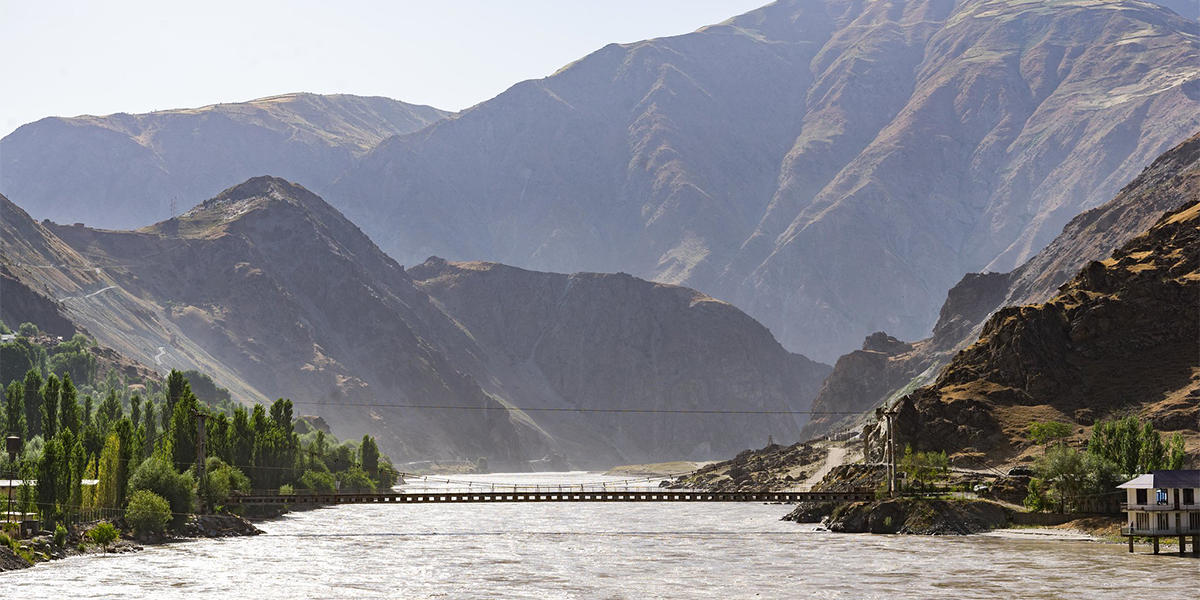
By Michael Kocher, General Manager, Aga Khan Foundation
The Aga Khan Development Network is a collection of 10 development agencies. Collectively, our agencies seek to achieve three things:
- First, to improve the quality of life in almost every respect – education, health, livelihoods and other key opportunities for the future.
- Second, to promote pluralism. We work with everyone in the communities where we’re present, regardless of faith, creed, background, or gender. This is a fundamental, non-negotiable principle that underpins our entire approach to development. Without that commitment to everyone, to all faiths and creeds, we would not be able to work in the fragile contexts we do.
- And third, we try to enhance self-reliance. We want to build the resources and reflexes of local civil society so communities take charge of their own development. Across everything we do, in every sector, we insist on community participation or ownership in some way. It’s essential communities themselves have a determining say in the development projects or institutions we run, and that they are involved in identifying and prioritising those needs to begin with.
Whatever country we’re in, we’re characterised by our long-term commitment and our multi-sector approach. Since we want to address the inter-related causes of poverty, that takes time. It’s also why we have several different agencies specialising in different aspects of development.
When we say “long-term,” we mean it. Our agencies were founded by His Highness the Aga Khan, who assumed his office from his grandfather now 61 years ago. Some of our schools for example have been active in these places for over a century, and the Aga Khan Foundation just celebrated its 50th anniversary.
Therefore, our intention is to build permanent institutions with deep local participation and ownership, working with communities over generations to improve their prospects and opportunities.
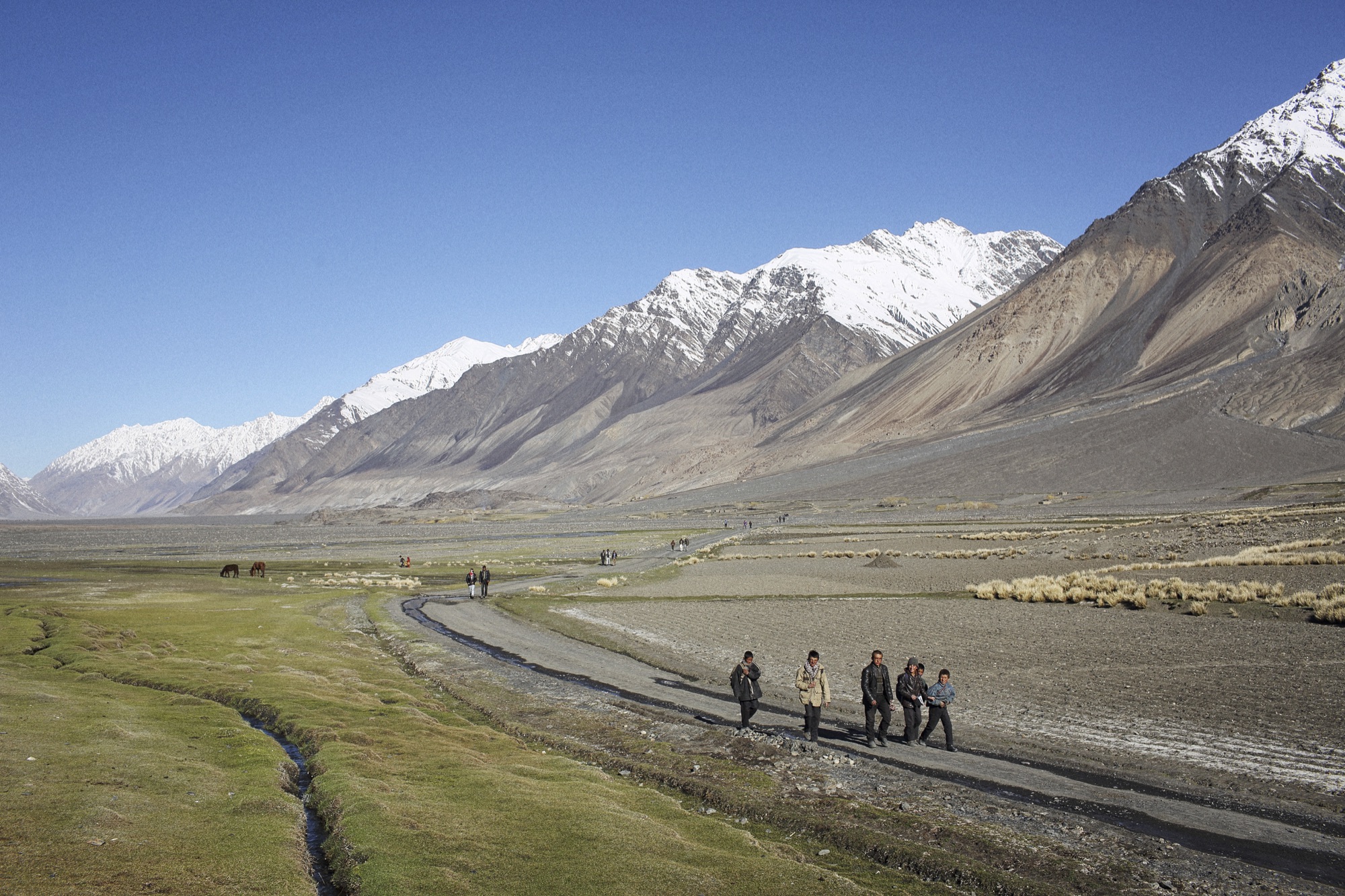
Working in areas of crisis and fragility
His Highness the Aga Khan is the 49th hereditary Imam of the Shia Ismaili Muslims. His Highness founded AKDN, including AKF 50 years ago, to support the commitment to improving the quality of life of their community and of all humanity.
This brings me to my topic: working in areas of crisis and fragility.
It so happens several of the countries where Ismailis live are areas of significant isolation, poverty and deprivation, and social tension, insecurity, or fragility. These are also many of the places where AKDN is present and active.
I’m often asked whether we only work with Ismailis. It’s a natural question, since our geographies often overlap with places where Ismailis either live today or were present.
The answer is clear and categorical: absolutely not. In development, to focus only on one community to the detriment or exclusion of others would undermine everything we and our agencies are trying to achieve. A large percentage of our beneficiaries are in fact not Ismaili.
We take a community-based approach. In a fragile or conflict-prone area, and in development generally, the worst possible thing you could do is focus your activities on a subset of the population to the exclusion of others. That is the surest way to generate resentment, division and further conflict.
“We are inclusive in what we do. Our ethics require it.”
And so at AKDN, we’ve made it a founding principle to work with all people, of whatever background, wherever we’re present.
Before joining AKDN, I spent most of my career working for the International Rescue Committee – now headed by the UK’s former Foreign Secretary, David Miliband – in places of extreme fragility.
I joined the Aga Khan Foundation six years ago because I knew it took a long-term approach, focused on high-quality and on results, and had a deep reservoir of local legitimacy. I wanted to address the root causes of poverty, inequality, intolerance and strife.
As I think about the lessons we’ve learned in places of fragility, it is vital that I start with that – local roots, local legitimacy. It’s the heart of what we do, and critical to our success in difficult places.
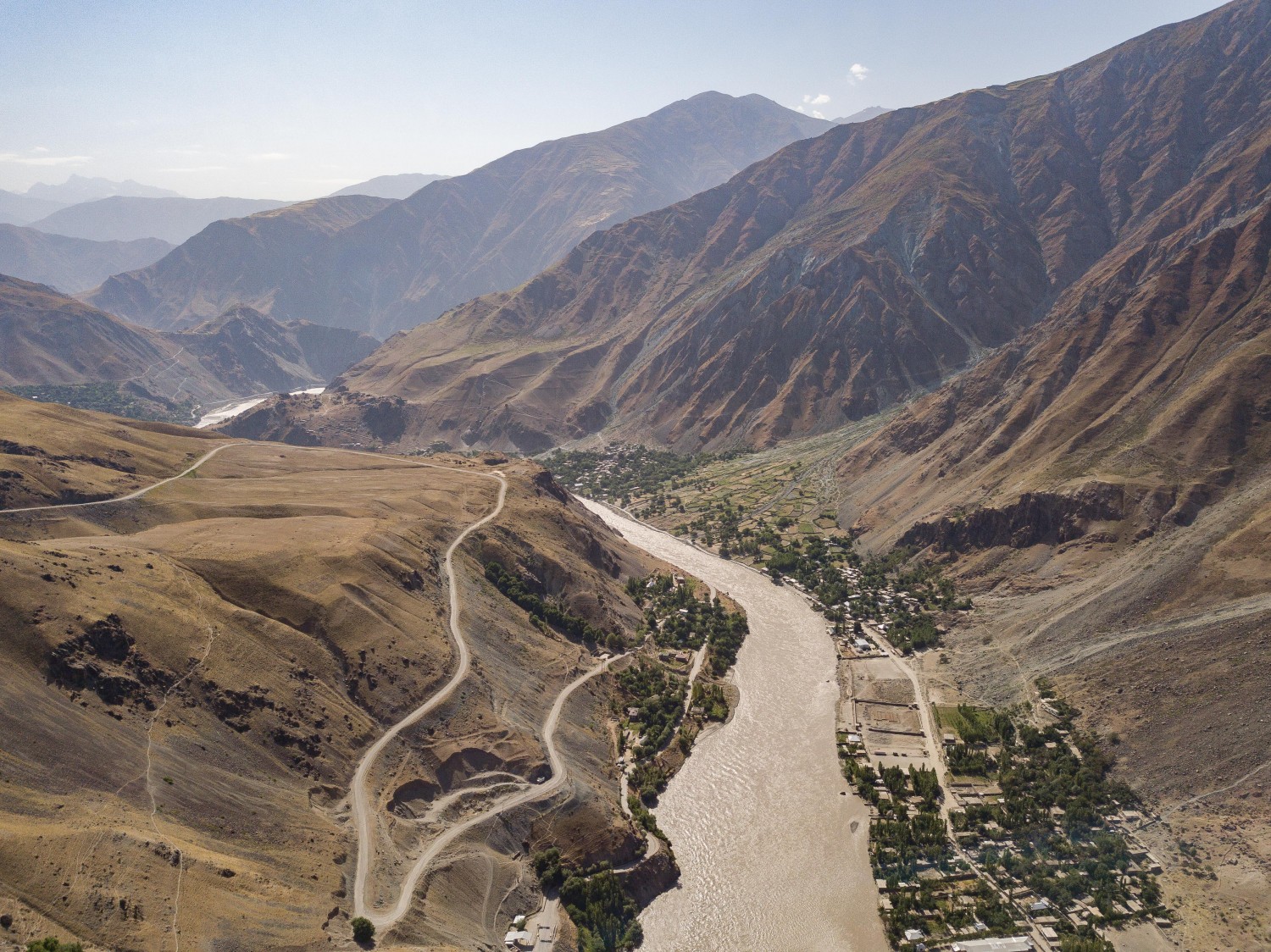
Some examples of our work in fragile contexts
So what does that really mean and what does it look like on the ground? Let me give you a few examples and then distil some of the lessons I think we have learned.
I start my examples with Northern Pakistan: This is where AKDN’s first schools were started over a century ago, and where the Foundation and other agencies have worked for decades. Although we work in almost every part of Pakistan, and have a number of national programmes, our work in the North has been going the longest.
Northern Pakistan is extremely remote and mountainous, prone to earthquakes, floods and avalanches. It’s one of the most beautiful places in the world, but life is hard for the people who live there.
“When we started our work, more than 80 percent of the population was living in extreme poverty.”
When we started our work, more than 80 percent of the population was living in extreme poverty; the literacy rate was around 20%; just 25% had access to electricity; only 5% drank clean water or had access to sanitation. It had the worst maternal mortality rate in Pakistan – 55 of every thousand mothers died in childbirth.
In a context of extreme deprivation, people are often more likely to compete than cooperate, especially when religious or communal tensions are layered onto resource constraints. Tensions there could erupt between Sunni and Shia, Ismailis and non-Ismailis, or simply between villages in competition.
Two things were fundamental from the start: First, that the communities themselves should identify their own problems and participate in their solutions; and second, that everyone in the communities should be consulted and that all groups must benefit. Those principles of development have guided our work ever since.

As a result, the Aga Khan Rural Support Programme, or AKRSP, was created in Northern Pakistan in 1983. AKRSP was founded on the principle communities can take ownership of their own development by establishing and working through village organisations they maintain and run themselves. Today, there are 4,700 of these groups formed and active, with and without our help. Over half of them are run by and for women, another key aspect of inclusive programming that promotes pluralism and respect.
These groups have made an impressive impact. 35 years on, extreme poverty has fallen to about 30 percent. In many places, incomes have doubled. Literacy rates have more than tripled, to 65%.
Thanks to the support of many individual and institutional donors to improve access to water and sanitation, local hydropower, and health services, much has been done:
- 72% of people have access to clean water;
- 59% can access sanitation;
- In some places, more than 90% of villages have basic electricity;
- Infant mortality has dropped from 158 per thousand to 20; and
- Maternal mortality has dropped from 55 per thousand to five.
The job is by no means done. It indeed is inter-generational and multi-faceted. Notably, too many children are stunted, too many live on very low incomes, or don’t have toilets or clean water. Sectarian tensions often persist. We continue to strive to tackle these issues.
However, all this work has helped put in place institutions and processes at the community and district levels that can help the region absorb shocks and resolve tensions before they spin out of control.
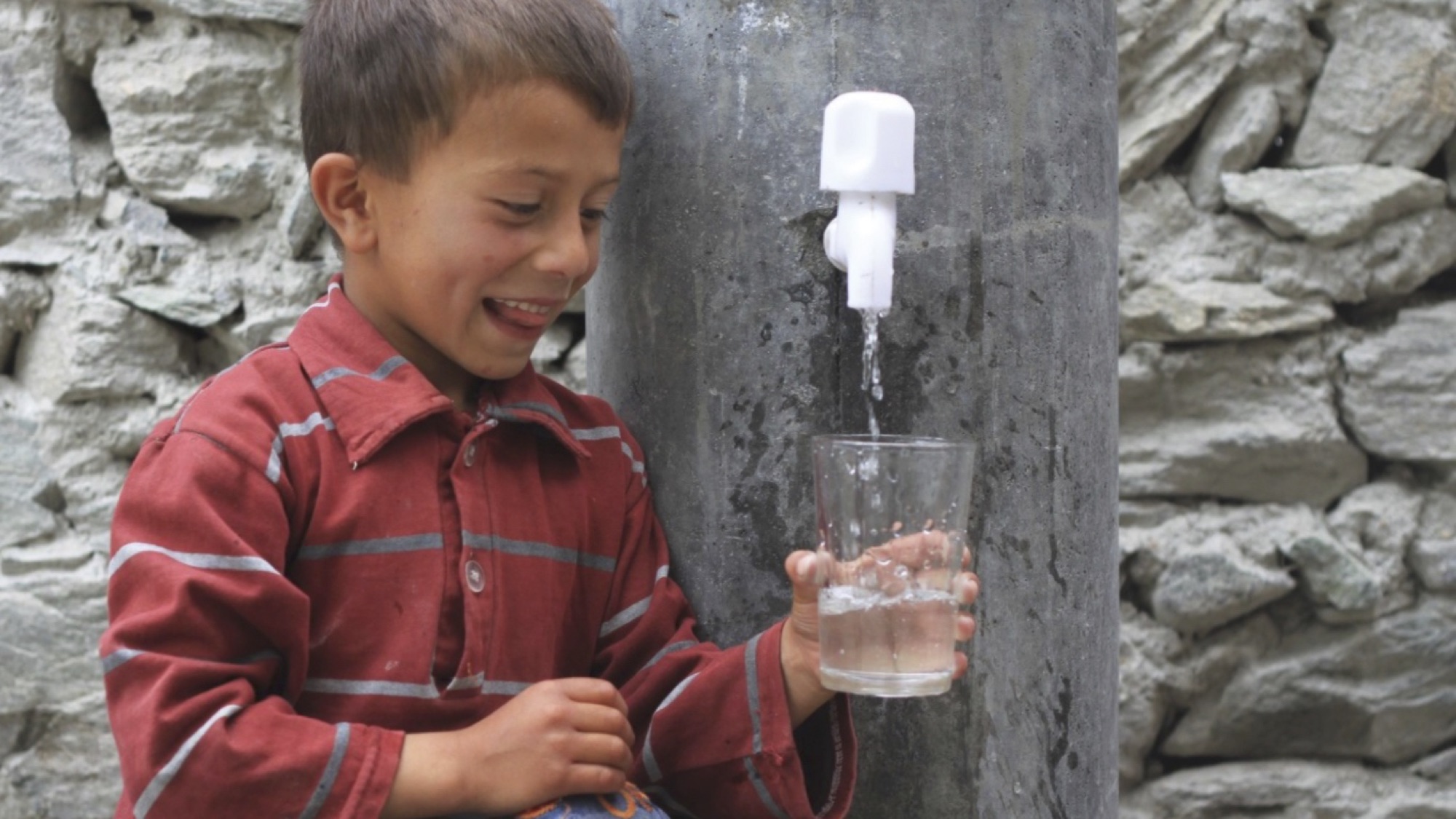
Now, let’s turn to an Afghanistan example: One of our adaptations of the Northern Pakistan approach is in Northern Afghanistan, with the support of KfW and the Government of Germany. AKDN has been active in Afghanistan since the mid-1990’s, when we started providing food aid and conducting girls’ education programmes house to house. Today, we work in 16 provinces, across a range of thematic activities, and it’s our largest programme anywhere in the world.
The example I want to highlight today is the KfW-supported Stabilisation Programme for Northern Afghanistan, or SPNA. Under this programme, AKF, ACTED and Mercy Corps help form community organisations and prepare them to interact with local officials. KfW makes a pool of “district development funds” available the communities can apply for through the local government, helping address critical local needs and building the capacity of Government and citizens alike.
“AKDN has been active in Afghanistan since the mid-1990’s, when we started providing food aid and conducting girls’ education programmes house to house.”
As one of the models, over €100 million has been programmed through 50 District Development Assemblies and over 450 projects, building vital roads, schools, water facilities, and other critical infrastructure – improving local conditions and local civil society along the way.
There’s a strong link between SPNA infrastructure projects and local perceptions of security and stability, despite the overall deterioration of the security environment in Afghanistan. We cannot expect a programme like this to overcome the geopolitical constraints of the Afghan war, but evaluation also demonstrates the programme improved perceptions of the Afghanistan Government’s ability to respond to people’s needs – which we know is a critical element to post-conflict reconstruction.
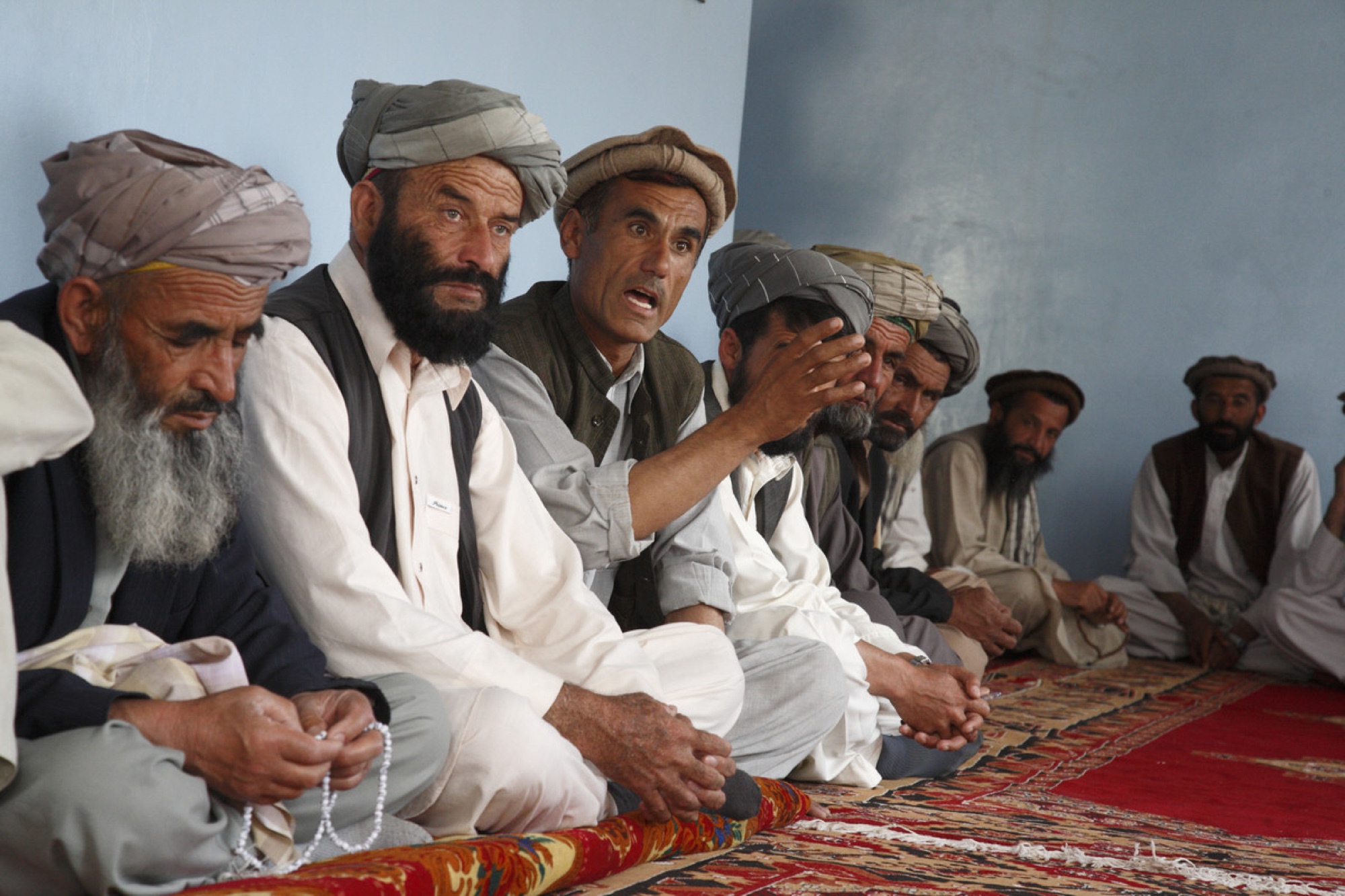
Another example is education: In Northern Pakistan, as I noted earlier, our education programmes have had a transformative impact. A key part of that is girls enrolment, which is over 90 percent – versus just 55 percent elsewhere. It hasn’t always been easy, but our community-centred approach has convinced most people to support it.
In Afghanistan, you could imagine how contentious this is in some places, but we’ve built trust on these issues over two decades. Now we manage a FCDO-funded programme that helps girls get in – and stay in – school across three-quarters of the country.
As always, we start by listening – in this case listening to communities and religious leaders to understand what the barriers to girls’ education are. Then we work with them to address their concerns: by building schools closer to a village, by providing girls-only toilets, or training more female teachers. Steps like these, simple but critical, are helping 300,000 Afghan girls get an education and stay in school longer. Afghanistan’s Government has adopted some of these in its new education strategy and will be mainstreaming them across the country.
Our commitment to educating girls extends beyond primary school. The Aga Khan University was founded 35 years ago in Pakistan with two programmes initially: a teacher training college and a nursing school intended to professionalise teaching and give women more job opportunities.
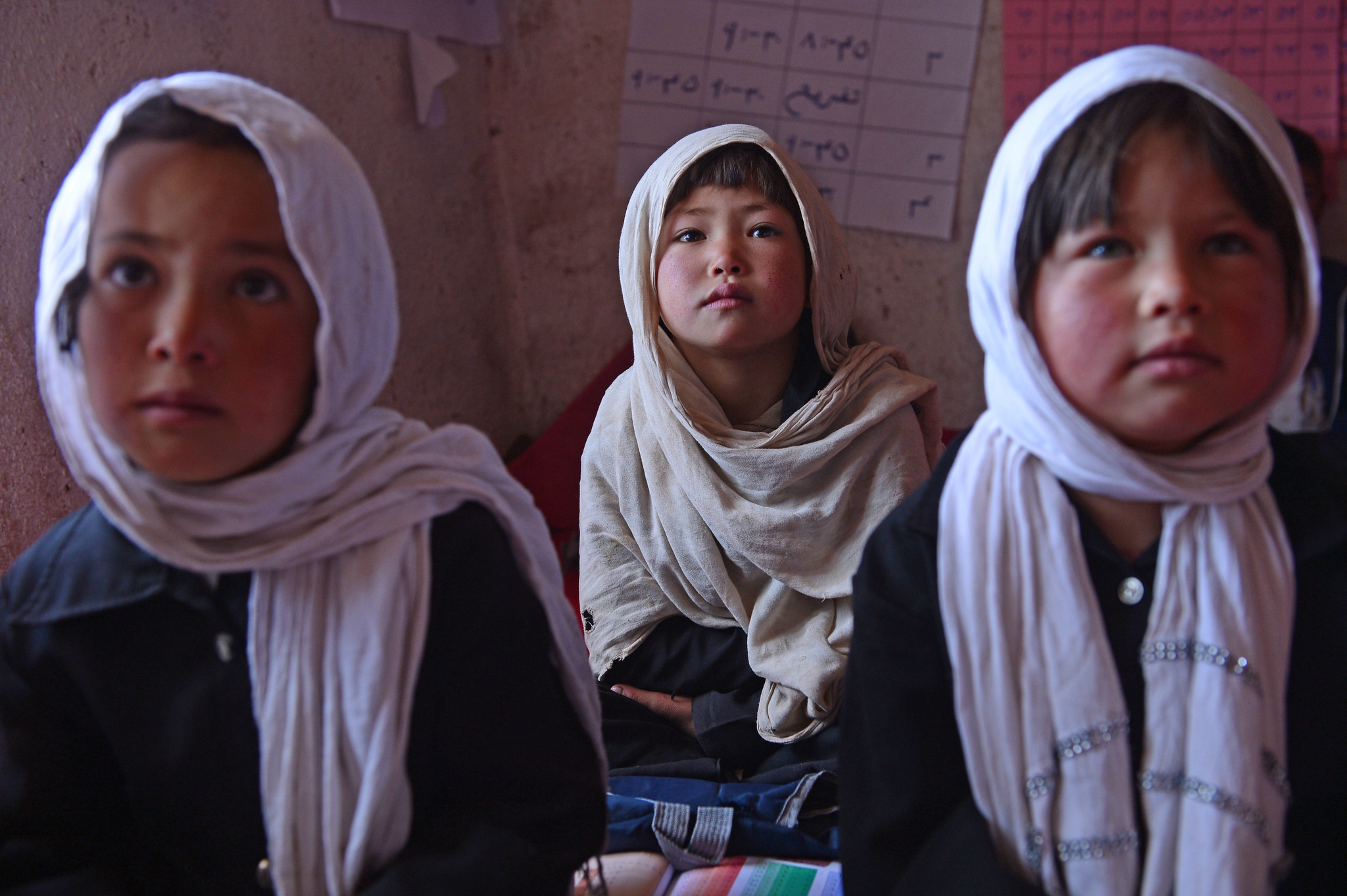
My final example is cross-border work in Afghanistan and Tajikistan: AKDN has developed cross-border programmes in Central Asia, along with others. The mountains of eastern Tajikistan merge with those of Northern Afghanistan, separated only by the narrow river Pyanj. Before the Soviets, communities on either side were linked by family, language and tradition. For over 70 years, they were kept apart.
Over the past decade, AKDN and other partners have built five bridges and markets to link these lands, bringing people into contact again, sparking local trade and supporting local livelihoods.
The impact has been significant. Prior to the markets, getting staple goods like salt or flour was a two-day donkey ride for villagers on the Afghan side. Now they just have to cross the river on market day. The same was true of hospital care, but AKDN has worked with Tajik authorities to enable emergency services for Afghans in this corner of the country.
On energy, in 2002, with support from IFC, the World Bank, and the Government of Tajikistan, AKDN formed the first public-private partnership in energy in Central Asia, a Tajik company called Pamir Energy. Today 98% of Tajiks in this area, some 200,000 people, now have access to affordable, reliable and clean energy. Pamir Energy now export power across the river to Afghanistan, electrifying 60,000 houses for the first time.
KfW and the PATRIP Foundation have been vital partners in this work, supporting it since 2010. This has helped bring other development partners to the area, including the European Commission, which is now working with us and the PATRIP Foundation on a sixth bridge and market. The momentum is positive, and growing.
We also have as one of our important objectives catalysing enterprise and broader economic development across these areas. We started an initiative, “Accelerate Prosperity”, which we seek to expand with partners.
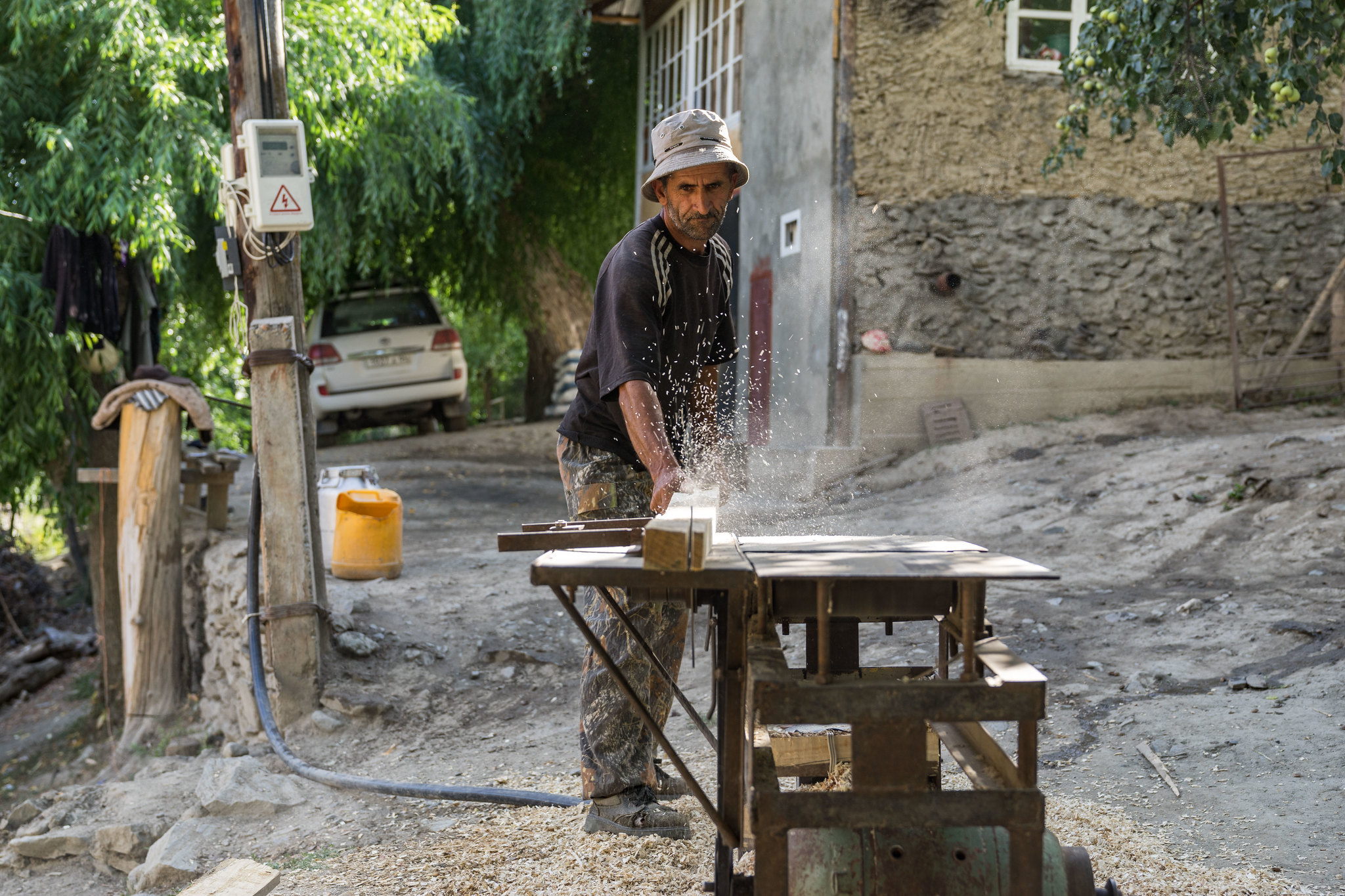
Lessons and take aways
In closing, what are some of the crucial elements or lessons we take away from working in crisis areas or fragile environments? A few things stand out:
- First, a long-term approach is critical. Often we start slowly, building up trust and demonstrating commitment. That is essential to gaining – and keeping – legitimacy.
- Second, being community-centred: We’re fortunate to have a leader and founder who focuses on communities first and who has the patience and wisdom to play the long game. Indeed, partners like Germany who look for long-term results are key.
- Third, we’re able to commit our own funds to a country or region. Partner funding like yours is essential and it allows us to do more and more quickly, but once we’re in a country we can stay committed.
- Fourth is local leadership: 95 percent of our staff are from the countries or regions where we work, including senior management.
- Fifth and finally, I think our regional approach also helps us be a force for integration and inclusion. We always ensure these initiatives are aligned with national development plans – but the point is to help build avenues of collaboration and cooperation.
There’s much we can of course do to improve further. An example is knowledge management, and another is measuring sustainable outcomes – beyond specific project outputs. Also, managing a portfolio based on grants that each have defined end points is never simple. Development isn’t easy, and we’re all very mindful of where we fall short.
I want to end now where I began: the AKDN, alongside our valued partners, aims to improve the quality of life, enhance self-reliance, and promote pluralism. Over the decades ahead, we’ll deepen these commitments:
- Working toward a more inclusive and pluralistic world where difference is regarded as a strength and not a weakness;
- Seeking to lift millions of more people out of poverty; and
- Continuing to focus on the poorest and most marginalised communities to help them face the future with a greater sense of optimism.
Thank you.
This article was adapted from an address Michael Kocher gave to KFW on 13 September 2018.
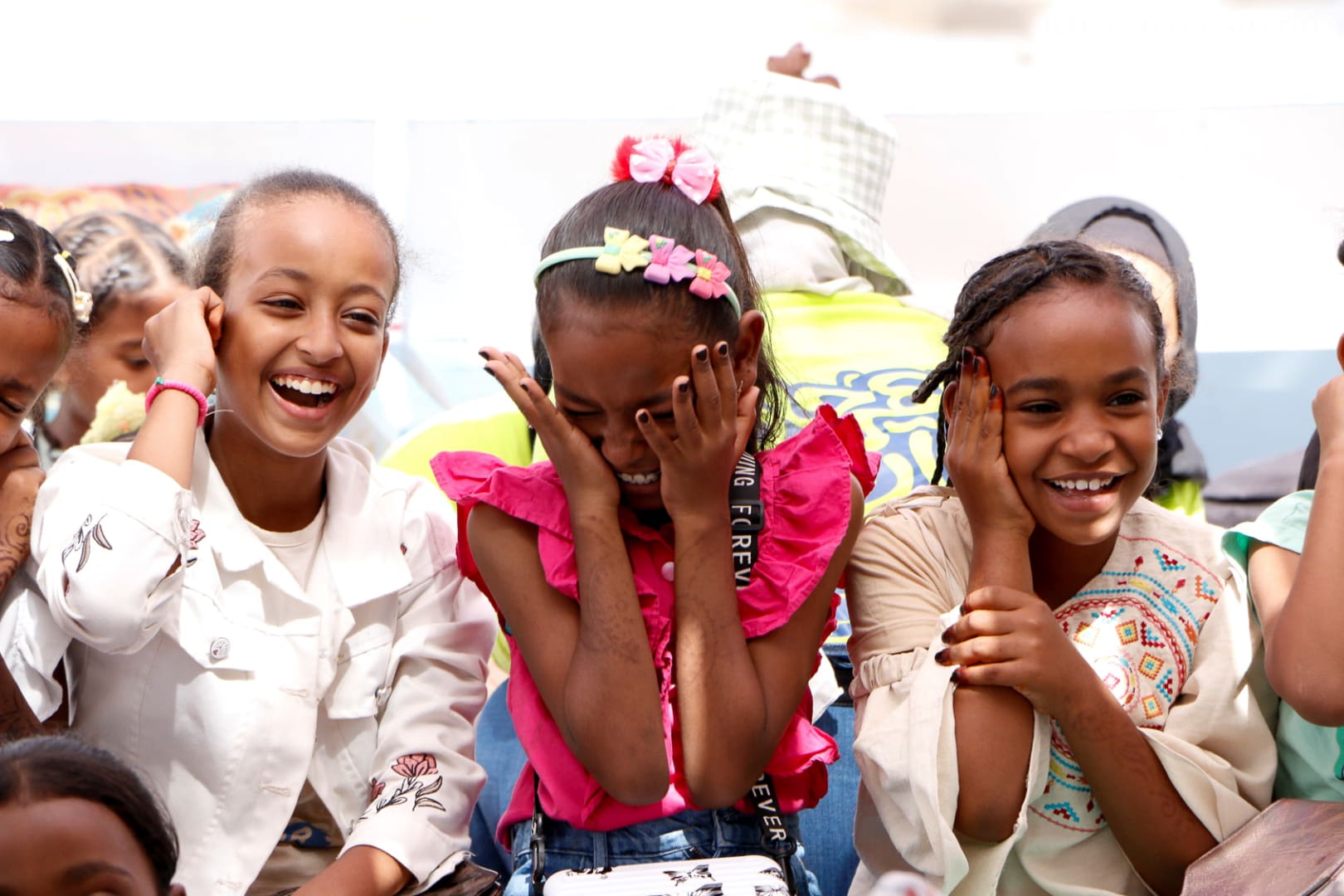
Support our work Your donations are helping us build a future where we all thrive together.